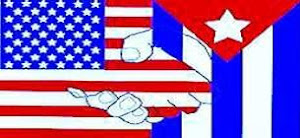We are all very sorry to learn of the death of Cuban hunger striker Wilman Villar Mendoza. The facts and circumstances of his incarceration are in dispute between what the Cuban government and Cuban activists report. Regardless, no prisoner should be allowed to die in a hunger strike or have prison conditions that exist to drive a prisoner to commit suicide. His unfortunate passing has empowered all sides of the continued propaganda battle among Havana, Washington DC, and Miami. Within only a flurry of hours of his death, we had more coverage on this unfortunate incident and responses from all over, including the White House. It is impressive and well choreographed just how quickly the news and the subsequent spinning to foment a political crisis begins after a tragedy like this.
The problem is that the issue of dissidents and hunger strikes are seen as potential flashpoints for stirring and instigating an uprising in Cuba from the United States. This is what the pro-embargo hardliners want to happen with the Cuban dissident movement that we support from here. They want to encourage an "Arab spring" in Cuba. It is clear that they do not understand what created it in the first place or how it even actually happened. The Arab spring is an authentic, organic popular movement that was not orchestrated from nor directed by a foreign country. This does not mean that an Arab spring is possible in Cuba. Popular discontent over inequality and abuse of power is a global problem and nations need to be sensitive and responsive to the problems of their people.
Cuba indeed has its problems. But whatever change does happen in Cuba, it is not going to be because we started it and try to impose it from here. That is the point. We have tried interference unsuccessfully now for more than fifty years. Maybe its time to try a different approach? We have referred on more than one post that Cuba has two dissident movements, the one we support from here (yes, our wasted tax dollars at work) which has not translated into any meaningful change, and the actual dissident movement reflected in the general discontent in the Cuban population (the Cuban 99 percent) that wants changes on a much larger scale than what is occurring now. That is the movement that will actually foster reforms and one that our government and the Batista generation in Miami are not being given much admittance into for historical reasons. Cuba indeed has civil rights challenges as most nations do. The Cuban government should recognize that basic civil liberties include protest, freedom of expression, and pluralistic democratic values of governance. These are not a conspiracy for regime change in Cuba, but a reflection of the reality of basic human existence and freedom. No man should go to jail and die because he protests peacefully in his own country. We won't know what exactly happened in Wilman's unfortunate death due to the conflicting accounts. We do know that he was buried by his friends and family in Contramaestre without it turning into a political demonstration.
Our lectures to, and cries for justice in, a foreign country fall impotent on the world when we should look within our own country each time we call attention to the shortcomings of others. We have the highest rate of prison incarceration in the world. Why? We have seen the loss of American civil liberties as a nation through our indefinite, undefined, "war on terror". Why? Legislation that weakens our rights as citizens and diminish the U.S. Constitution like the enactment of the Patriot Act, and most recently, the National Defense Authorization Act keep getting passed by Congress and signed into law. Why did President Obama sign a law authorizing the indefinite military detention of U.S. citizens without legal due process? We all know very well the abuses that were committed by some of our troops in Afghanistan and Iraq during those wars. And Guantanamo remains in a boondoggle. In some respects, are we becoming as authoritarian as the Cuba we complain about? In prisons, we have a death penalty that is arbitrarily and questionably applied. Look as recently when Troy Davis was executed in Georgia. We have real human rights issues here at home to consider before our righteous indignation on other countries will actually mean anything other than a soundbite or a headline. Our hypocrisy weakens everything we say and stand for. That is a national reflection we must undergo if we are going to demand other nations of the world live up to a standard we expect.
So while my heart goes out for Wilman Villar Mendoza and his family, our inorganic and inauthentic public relation attempts to promote uprising in Cuba through our policies and the manner we call attention to dissidents and hunger strikers will continue to fail because they are just that. The more we meddle this way, the less effective we actually are in being of any positive influence on Cuba that could prevent such tragedies in the first place. These misguided efforts serve only a narrow political purpose to placate the pro-embargo hardliners with a false perception -- those who are deluded to believe that we are going to force change in Cuba with an embargo, travel restrictions, or even decrying the tragic death of a Cuban man who should not have died in the first place in his own country.










0 Comments:
Post a Comment